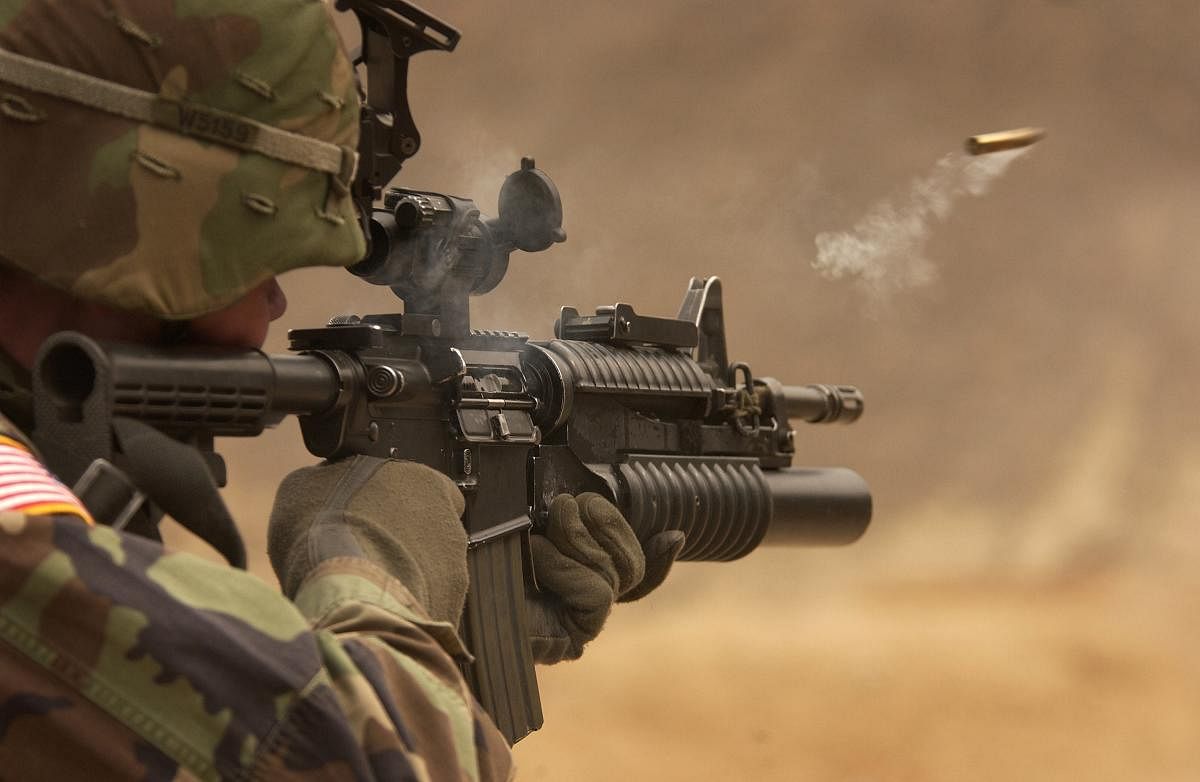
The most humane voice in Mohammed Hanif’s third novel, Red Birds, is that of a desert mongrel called Mutt – easily my most favourite character in recent times. Mutt’s pronouncements can crack and choke one up; such is the effect of this four-legged limping seer.
As the title implies, there are birds too —wispy red ethereal birds, seen momentarily. They surface later, through transient seconds. Yet, Mohammed Hanif, the Pakistani writer of post-9/11 perceptive fiction, is not into animal tales. Rather, it is more about the dogs of war. Like Khalid Hosseini and other writers who have been disturbed by America’s never-ending war on terror, Hanif, a former Pakistani air force pilot himself, writes with his trademark biting wit and underlying pathos, about the effect of growing up with a perpetual war in one’s backyard. The Middle East and adjacent South Asian nations have been victims, through decades of US foreign policy — and the region’s writers have been telling it like it is.
Hanif’s novel is played out in an unnamed desert region — “a war-torn, devastated half-forgotten place” (Hanif in an interview). Iraq, Syria, Baluchistan…? Journalists’ reports have brought such places into our living rooms. The narrative spurts out in hilarious bursts, so relatable and quotable; each chapter voiced in turns, by an American, Ellie, a dog named Mutt, and a teenage boy Momo, an artful survivor of the war. Later, a few more significant voices join in.
But it is Mutt who seems to deliver the most enchanting lines.
“This place is in shambles because nobody believes in premonitions anymore, nobody listens to clear and well-articulated warnings… sometimes I bark and howl. But do these people listen?’
“Red birds are real. The reason we don’t see them is because we don’t want to. When someone dies… their last drop of blood transforms into a tiny red bird and flies away.”
American air force pilot Ellie has crash-landed in an inhospitable hot desert. As Major Ellie wanders thirstily through eight days, he remembers the rules of desert survival, taught by his colonel. He finally stumbles onto a barely living being — a dog, the aforementioned Mutt, hurt and whimpering, lying in the baking sands. As man and beast meet, a little red bird seems to fly into the air. The dog is soon joined by its owner, refugee camp boy Momo, riding a Jeep Cherokee with a fading USAID logo. Ironically, Ellie gets refuge in the very camp he was supposed to target-bomb.
Reluctantly hosted by Momo’s family, Ellie simply yearns to return home. Meanwhile, he meets Momo’s family – Father Dear, a pen pusher working for the American forces in the region. There is a Mother Dear, mourning a missing elder son - Bro Ali, somebody who was drafted (with Father Dear’s approval) into the service of America, at the now-abandoned hangar, close by. Momo’s quest is to find Bro Ali – and Ellie is to be used for the purpose. And there’s a USAID worker lady, (nicknamed Miss Flowerbody), interviewing Momo constantly, for her book on the Teenage Muslim Mind. Everybody has an agenda. The only unselfish being is conscience-keeper Mutt, his brains fried by an electric pole he peed on. Thus enlightened, Mutt becomes the Voice, the satirical savant, that needs to be heard.
The tale proceeds, in expected and ultimately shocking, sobering fashion, but what registers are the laughs, the one-liners, the idea of a useless war being carried out in convenient bursts, with periods of comparative peace in between; of a young powerful country far away, controlling the lives of an ancient desert people.
Ellie understands it all, the ruthless efficiency of the war machine where he is simply a dispensable cog. “War has been condensed to carpet-bombing followed by dry rations and craft classes for the refugees.”
Lady Flowerbody is busy making notes for her topic, Post Traumatic Stress Disorder. Momo notes: “I get PTSD, she gets per diem in US dollars.” And again, “I am a survivor of the most useless war in the history of wars. Even our conquerors have abandoned us.”
Ellie and this European looking lady are the tools that Momo will use to enter the hangar, find Bro Ali, ease Mother Dear’s sadness.
The climactic scenes take place in the hangar — an intriguing place, the seemingly abandoned refuelling centre of a US Air Force unit. It is here that the novel enters paranormal territory, leaving the reader initially befuddled and slightly dissatisfied. But Mohammed Hanif uses magical realism to great effect and one soon starts to get a grip on the proceedings. All concerned find closure – differently. A bereaved mother’s acceptance may preclude reality, but it works for her.
The concluding chapters, voiced by Mutt and Mother Dear, leave one choked up. And thus Hanif wraps up his searing critique of America’s war-play in the Middle East.